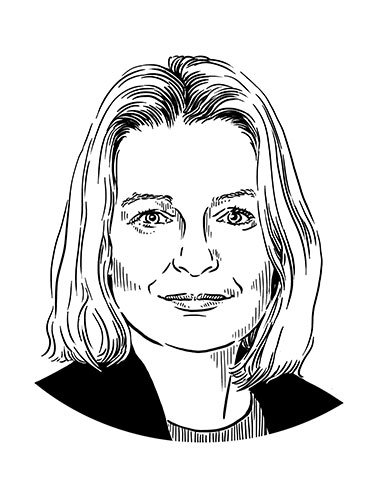Can Switzerland beat COVID-19, Sarah Lein?
Text: Sarah Lein
Assessing the country’s handling of the pandemic so far – from an epidemiologic and an economic perspective.
SARS-CoV-2 is not just harmful to human health, but also to the economy. The measures aimed at reducing contact between people clearly entail high economic costs. When restaurants or retailers are forced to close their doors, for example, their ability to generate income is either non-existent or severely compromised. But is the logical conclusion that the measures themselves are harming the economy?
We need to consider what state the economy would be in without these measures. With excessively lax measures – or none at all – in place, infections would skyrocket. We don’t have to take epidemiologists’ word for it – developments in countries where the virus was temporarily allowed to spread practically unchecked tell the same story. So how would key economic variables, such as consumption or investment, be affected if the virus were not under control? Would people still go to restaurants or hotels? Many guests would stay away for fear of contracting or spreading the virus.
This means that we would see a major decline in revenue even if businesses were not directly shut down. Meanwhile, excessively lax measures allow the virus to continue its spread, resulting in more cases and stricter measures in the future. In short, the economy would suffer even without the measures. In the mid-term, this downturn could actually even end up causing higher overall costs than short-term containment measures. This shows that it is not necessarily the measures that are harming the economy, but the virus itself. Studies have shown that a “self-imposed” reduction in consumption patterns has played a central role so far. Research from the US suggests that much of the decline in economic activity is due to changes in consumer behavior, while only a small part is explained by government-imposed restrictions.
While these findings are not directly transferrable to Switzerland, they make it clear that the difference between an economy with and without measures is not as great as it seems if we make the mistake of comparing the current situation to a world with no restrictions but also with no virus.
This is one of the economic arguments in favor of Switzerland as a whole footing the bill for the measures. These costs should not be borne solely by the sectors affected by shutdowns or major restrictions, but by society as a whole. This is why programs such as the furlough (“Kurzarbeit”) scheme are crucial to prevent unnecessary bankruptcies and long-term economic damage.
In conclusion, the measures imposed in Switzerland were the right thing to do not just in terms of public health, but also with regard to the economy. Switzerland’s eff orts to keep elementary schools open – in contrast to many other countries – are economically sound, as school closures exacerbate educational inequality. A key complementary measure would be to implement more extensive testing strategies, and above all an effective contact-tracing system, to prevent case numbers from spiraling out of control. These measures are much more cost-effective than lockdowns, and have received only limited consideration so far. Swift vaccination of the population will hopefully see an end to the pandemic. The sooner this happens, the better for the economy. In this sense, it is worth making substantial investments to accelerate the vaccination campaign.
Note: This article was written in February 2021 and is based on developments up to that date.
Sarah Lein is Professor of Macroeconomics at the University of Basel. Her research interests lie in the fields of monetary economics, business cycles and international macroeconomics
More articles in the current issue of UNI NOVA.

